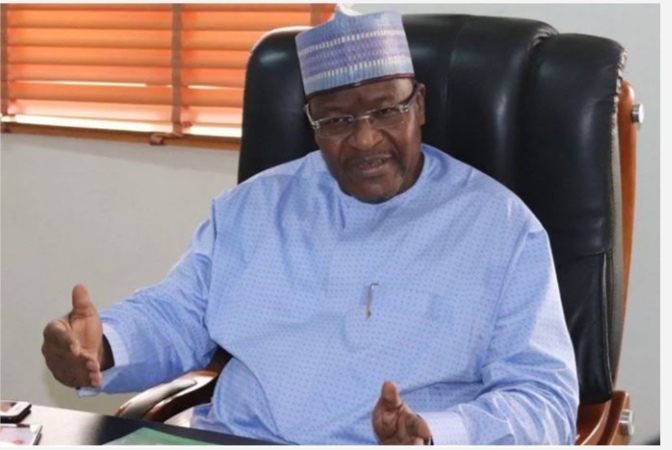NCC Boss Danbatta, Outlines Strategies To Optimization Of 4th Industrial Revolution Potentials.
By Helen udoh-Abuja
Nigeria is not lacking in key Policy and Regulatory frameworks and instruments which will enable us to play a leading role in powering the 4th Industrial Revolution, the Executive Vice Chairman of the Nigerian Communications Commission (NCC), Prof. Umar Danbatta has said.
Danbatta stated this on Thursday while delivering a Keynote Address entitled “Powering The Fourth Industrial Revolution in Nigeria” at the virtual Third Discourse Series of The Advoc Law Practice.
Citing as an example, the NCC boss said the National Digital Economy Policy and Strategy Policy (2020-2030) boasts of eight (8) pillars designed to, amongst others Enable Nigeria become a leading player in the global digital economy; Provide a catalyst to facilitate the diversification of the economy; and Accelerate the attainment of the key national objectives of improving security, reducing corruption and expanding the economy.
According to him, similarly, the Nigerian National Broadband Policy (2020-2024) clearly highlights the various implementation strategies that would aid the pervasive inclusion and rollout of broadband services across the country whilst also developing a robust and holistic digital economy.
Danbatta, who was represented by the Executive Commissioner, Stakeholder Management, NCC, Barr. Adeleke Adewolu, said NCC’s Strategic Management Plan (SMP 2020-2024 or “ASPIRE 2024”) consolidated on the vision articulated in the Strategic Vision Plan and 8-Point Agenda.
“We have responded to the policy goals highlighted above to harness the immense socio-economic benefits of ICT for national development; to ensure that ICT infrastructure are up to the standard necessary to provide ubiquitous broadband services in Nigeria; and to align the Commission’s regulatory efforts with the aforementioned Policy Instruments, as well as the growth strategies of the International Telecommunications Union (ITU) to ensure Growth, Inclusiveness, and Sustainability.
According to him, the NCC has recorded a number of significant achievements in this regard, adding that these include: the licensing of six (6) infrastructure companies (InfraCos) speed up the deployment of broadband infrastructure throughout Nigeria; and the provision of training and supporting public institutions with ICT interventions like School Knowledge Centers, ADAPTI etc.
Also included are enhancement of physical infrastructure, explaining that in the last five years, the Commission has expanded broadband penetration from 6% to 42.06 as at February 2021; access gap clusters have been reduced from 207 to 114; Fibre Optic coverage has increased from 47,000km to 54,725 km and Base Transceiver Stations for 3G and 4G deployments have increased from 30,000 to 53,460.
He further stated that the creation of a full-fledged department Digital Economy has been created to support Federal Government’s Digital Economy agenda, adding “We also increased funding of Telecom Research to N336.4m and have endowed four (4) Professorial Chairs.”
Additionally, he said the NCC has also commenced requisite engagements on 5G deployments and some of our licensees have already carried out trials.
He further stated “These strides will enable the telecommunications sector provide the infrastructure backbone for powering the Fourth Industrial Revolution in Nigeria.
“We are firmly committed to ensure that Nigerians in Nigeria play a leading role in Artificial Intelligence, Cloud Computing, Internet of Things (IoT), Robotics, Blockchain, Autonomous Vehicle, Drones and other innovative technologies which are now driving growth and national competitiveness.
“The question of regulation of disruptive technologies without stultifying innovation is one that we, like all other regulators globally, are carefully studying. For now, we have maintained a sharp focus on critical cross-cutting aspects like consumer protection, enhancement of competition, data protection and enhancement of trust in digital platforms through the prevention of cybercrimes and other abuses.”












